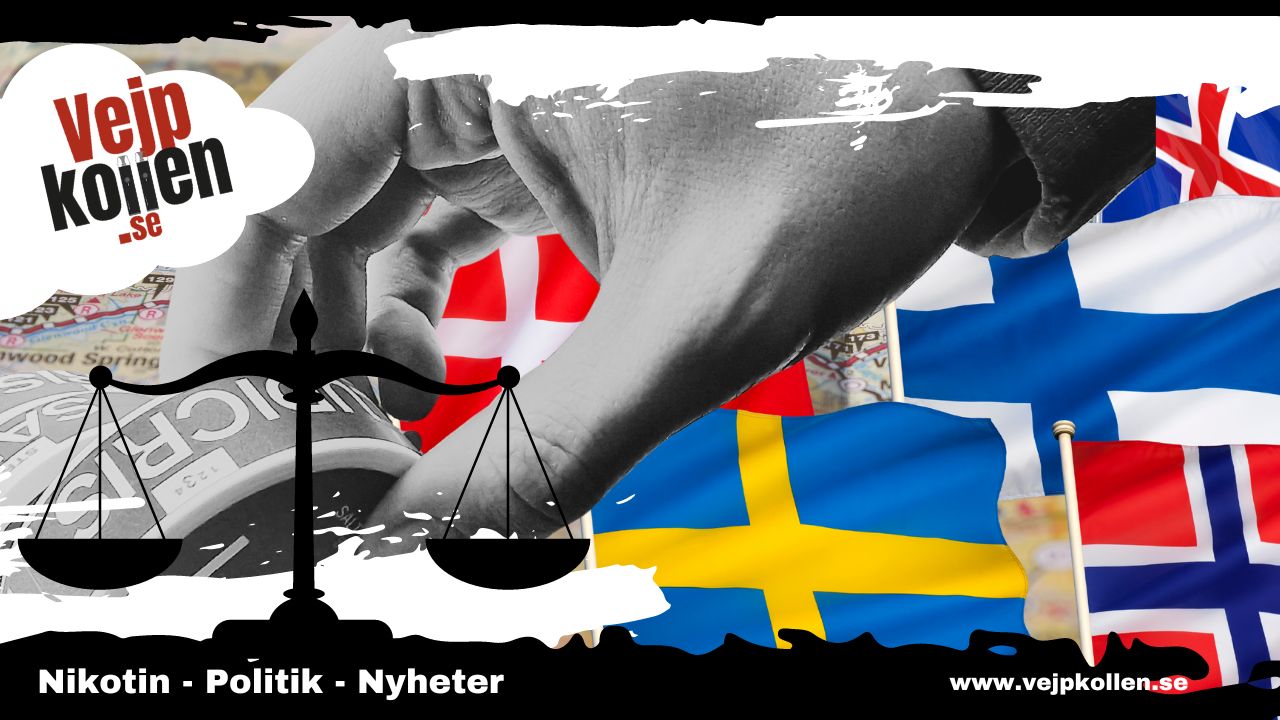Introduce a common limit for nicotine pouches in the Nordic countries. This is what Finnish Social Democrat Kim Berg proposes in a letter to the Nordic Council. At present, no countries apart from Iceland have legislated an upper limit.
Finnish Social Democrat Kim Berg (SDP) wants the Nordic countries to jointly set an upper nicotine limit for nicotine pouches. The reason is a concern that different rules in neighbouring countries are likely to lead to smuggling.
"A common nicotine limit will minimise the risks of smuggling and situations where people travel across borders to buy stronger white snus. It is also simpler and clearer for both consumers and manufacturers of white snus that the same rules apply throughout the Nordic region, at least in terms of nicotine content." writes Kim Berg in a question to velvetthe working body of the Nordic Council.
Popular products
Nicotine pouches are popular throughout Scandinavia. At the same time, countries have handled regulation very differently and it is only in recent years that some countries have started to regulate so-called white snus at all. At the same time, legislation varies considerably from country to country, which has led to extensive cross-border trade, smuggling and sales on a black market.
Norway - a bag of tobacco
In Norway, the products are in theory banned via a law that prohibits all 'new' nicotine products put on the market since 1994. The law is about to change but at the time of writing, all nicotine products except cigarettes and traditional snus are banned from sale. In practice, however, nicotine pouches are still on the market. This is because a small amount of tobacco is added and the pouch is thus classed as snus, a tobacco product that was authorised before 1994. Norway does not currently regulate nicotine content - but discusses restricting online shopping.
Iceland regulates nicotine levels
Iceland regulates nicotine pouches through a registration system that similar to the regulatory framework for e-cigarettes in the EU. Nicotine pouches must not contain more than 20 mg/gram of nicotine.
No regulation in Denmark
In Denmark, nicotine pouches are allowed without any regulation, similar to the EU. However, the Danish government is likely to propose a nicotine limit of 9mg/gram.
Sweden regulates sales
In Sweden, the country that produces and exports the most nicotine pouches to neighbouring countries, nicotine pouches have been regulated since 2022. Swedish legislation prohibits no restriction on flavoursbut limits the possibilities to market the products and sales to persons under the age of 18. However, a revision of the rules is underway and a government enquiry is currently proposing a limitation of the maximum nicotine content to 12 mg/gram.
From pharmacies to high street shops
In Finland, the nicotine pouches until just two years ago have been classified as medicinal products and cannot be sold without a prescription through a pharmacy. However, since 2023, nicotine pouches regulated as tobacco products and allowed in regular shops, but only with so-called 'adult flavours' such as tobacco and mint. The current Finnish government has proposed a maximum limit of 16.5 mg/gram, but the Finnish Health Committee wants to lower this to 12 mg/gram.
Want to be ahead of the EU
Nicotine pouches are one of several products that will be included in the upcoming the revision of the EU Tobacco Products Directive, TPD. But work on the framework is slow and according to Kim Berg neighbouring countries should be one step ahead.
"I see great benefit in the Nordic countries agreeing on a common maximum nicotine content for white snus. This would not only contribute to better public health, but also make it easier for both consumers and manufacturers to navigate the regulations," says Kim Berg in a press release via SDP, the Social Democratic Party of Finland.
According to Mr Berg, a common nicotine border would likely reduce the risk of smuggling and limit the black market in the countries with the strictest legislation. At present, the black market for for example, e-cigarettes in the countries that imposed strict bans against the design of the products and limited flavourings. This applies in particular to in Finland, something that police and customs authorities, as well as several media outlets covering the issue attracted attention over the years.




